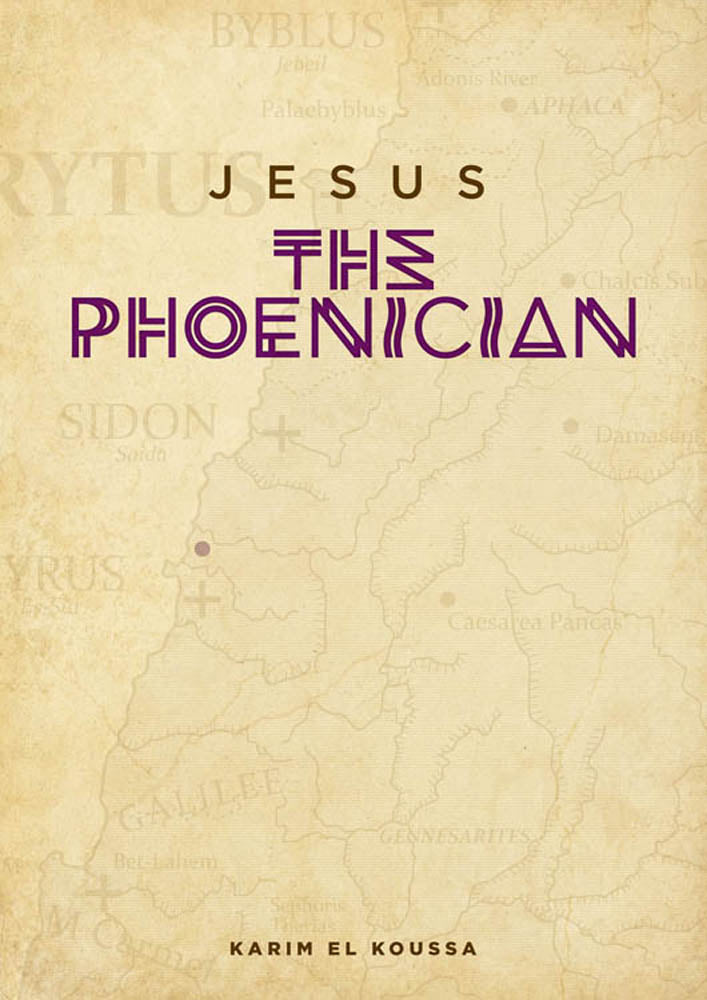
April 22 , 2020
Karim El Koussa’s “Jesus the Phoenician" is the Ars Metaphysica bestseller for March
| ARS METAPHYSICA - Bestsellers for March 2020 (by Revenue) | ||||
| Rank | Prior | Title | Author | Category |
| 1 | 4 | Jesus the Phoenician | Karim El Koussa | Religious History |
| 2 | -- | The Complete Story of the Worldwide Invasion of the Orange Orbs | Terry Ray | Paranormal |
| 3 | -- | The Phoenician Code | Karim El Koussa | Metaphysical Fiction |
| 4 | -- | The ABCs of Narcissism | Michelle Hoffer | Self-Help |
| 5 | 2 | Living in the Afterlife | Michele Livingston | Metaphysical |
- Part I
- Etymology of the Savior's Name
- The Great Annunciation
- The Family of Jesus
- Part II
- The Geographical Region: Mt. Carmel & Bet-Lahem of Galilee
- The Historical Evidence of Jesus the Galilean
- The Galilean Disciples of Jesus
- Part III
- The Cultural and Religious Entourage at the Time of Jesus
- The Hypothetical Jesus the Jew Fails to Prove Himself Once Again
- Which God and What Temple?
- Part IV
- The Extra-New Testament Sources
- The Church New Testament
- The Religion and Theology of Jesus the Phoenician
- Epilogue
- Appendix:
-
Maps
- Authentic Maps of the Phoenician Bethlehem Bet(h)-Lahem (House of Bread)
- Map 1 - Section of "Palestine"
- Map 2 - Section of ancient "Soria"
- (This is a section of the first scientific map of Syria (meaning Phoenicia). It was drawn by the geographer Ptolemy around 150 AD, basing it on the work of Arastonis and Marinos of Tyre.)
- Map 3 - Section of "Bird's Eye View of the Holy Land"
- Map 4 - Section of "Israel"
-
Pictures
- The Grotto of Makadoushi where Virgin Lady Maryām waited for her son to return from his missionary journeys in Jerusalem
- The Lebanese Kana or Qana: the place of origin of the Virgin Lady Maryām and the famous wedding of Kana where the first miracle of turning water into wine occurred
-
Tables
- Table 1 - Yāwshu Family Tree
- Table 2 - The Apostles
- Table 3 - The Approximate Timeline of the Most Important Christian Events and the Development of the Church New Testament
«The New Testament is a Phoenician call that has nothing to do with the Jewish religion. Conclusively, Jesus was not the son of David nor was he Jewish, but Canaanite/Phoenician. His Father was not YHWH but Ēl-Ēlyon. His name "Immanuel," as written in the New Testament, does not mean "YHWH with us" but "Ēl (God) with us." In his 342 pages book, author Karim El Koussa is going to decode the Old Testament and New Testament, passing by Apocryphal works, tens of books and hundreds of references, using the geography of the region at the time along with the etymology of names and places to support his theory. A lot of research related to the subject is yet to be done, meanwhile, his book will cause more spilled ink.» -- Lebanese Senior Culture Editor, Maroun Salhani, wrote during a review of the book and an interview with the author on NOW. Lebanon, February 1, 2014.
«This is a highly controversial subject. Karim's thesis is revolutionary but quite possibly true. He sets out to prove by the Bible itself - New and Old Testaments - that Jesus of Nazareth was not a Jew and that the God he called "his Father" was the Canaanite "EL", not the Jewish YHVH. (Jehova). This should be a very provocative and enlightening discussion -- so tune in and get Salvation Phoenician style.» -- American author and Host Poke Runyon reviewing and discussing the new book by the Lebanese Christian author Karim el Koussa «Jesus the Phoenician» on Radio (blogtalkradio) in a program called The Hermetic Hour, January 9, 2014.
9 x 6
348 pages w/maps and photos
